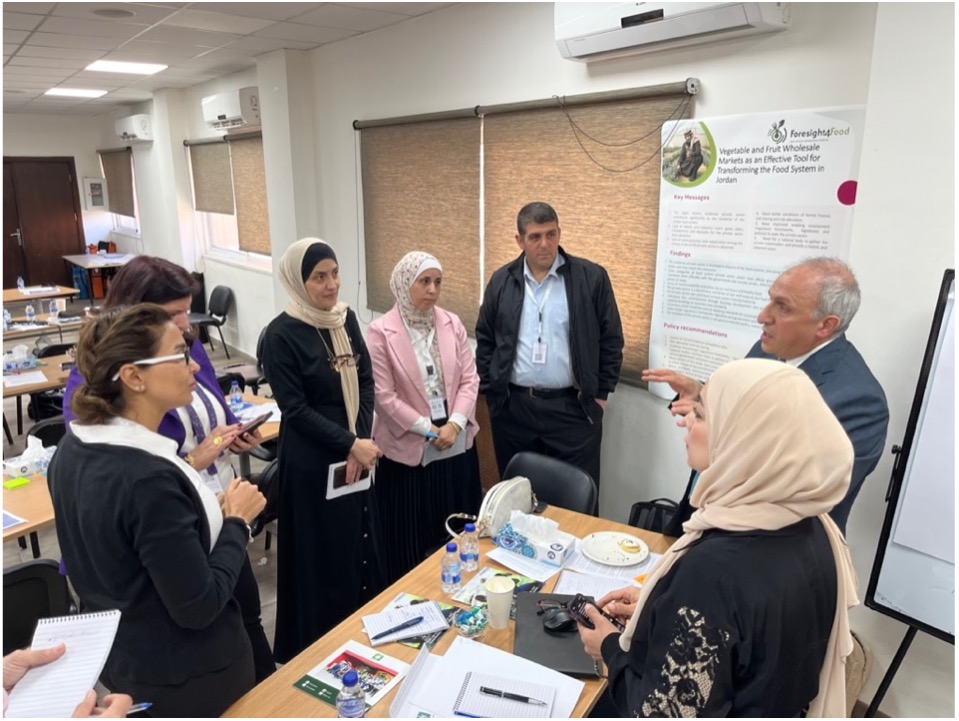By Jim Woodhill – Lead Foresight4Food Initiative
It was great to participate in the next phase of Jordan’s journey toward food systems transformation as part of the Foresight4Food Initiative. This significant step brought together around fifty key stakeholders on November 11 to discuss strategies for accelerating change.
The discussions built on earlier work from the Foresight4Food FoSTr Programme in Jordan, including scenario analyses developed during previous workshops, computer modelling results, and a series of policy briefs. These resources provided a foundation for the day’s explorations into actionable pathways for transforming Jordan’s food systems.

A key highlight of the workshop was the collaborative spirit among diverse stakeholders. This environment fostered consensus-building around critical challenges and opportunities. Participants examined deep-seated barriers to change, focusing on economic and social incentives, the power dynamics of various actors, and entrenched mindsets that hinder progress.
Drawing from detailed policy briefs on topics such as vegetable and fruit markets, food governance, the role of the private sector, and the contributions of civil society, the workshop delved into strategies for enabling meaningful change.
Informed by the policy papers on vegetable and fruit markets, food governance, the role of the private sector and the role of civil society, the workshop looked more deeply into how change can be brought about.
One particularly impactful aspect was the use of computer modelling, conducted with Wageningen University and Research’s MAGNET model. This analysis demonstrated the potential consequences of continuing current practices (“business-as-usual”) versus adopting healthier, more sustainable pathways. Such data-driven insights are instrumental for policymakers, equipping them with evidence to support investments and policy reforms.
Beyond the workshop, conversations with Jordanian universities explored integrating foresight and systems thinking into academic curricula. Additionally, a dedicated training session provided researchers and policymakers with hands-on experience using the MAGNET model to analyze food system changes.
The workshops were made possible with support from the Jordanian Hashemite Fund for Human Development (JOHUD) and the National Alliance Against Hunger and Malnutrition (NAJMAH), underscoring the importance of partnerships in driving food systems transformation.